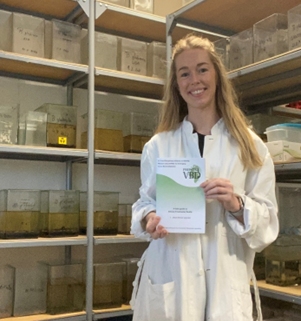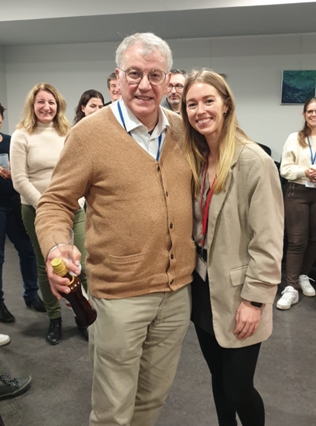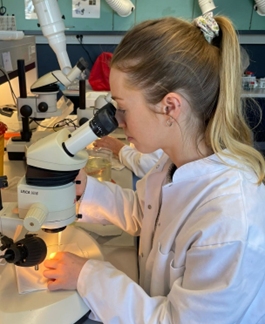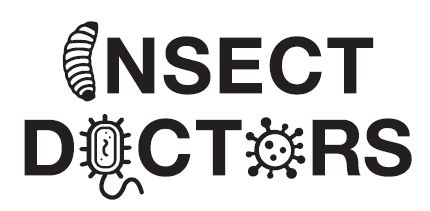Life after PhD
Luis Hernández Pelegrín
August 18. 2025
One year has already passed since I completed my PhD on covert viral infections of the Mediterranean fruit fly at the University of Valencia and Wageningen University & Research. Since then, I have been working as a postdoctoral researcher in my home laboratory in Valencia. During this period, I gained new insights into the evolutionary and ecological dynamics of RNA viruses, and developed and automatized bioinformatic pipelines for faster and more efficient analysis of insect viromes and microbiomes, using both Illumina and Nanopore sequencing data (which I also ran independently for the first time!). In addition, I have been actively involved in supervising projects related to the food and feed industry, with a focus on temperature-driven selection in the black soldier fly (BSF). Overall, these new skills have allowed me to develop personal projects, such as uncovering the evolutionary history of insect xinmoviruses, as well as collaborating on studies exploring multitrophic interactions between viruses, parasitoids, and hosts.
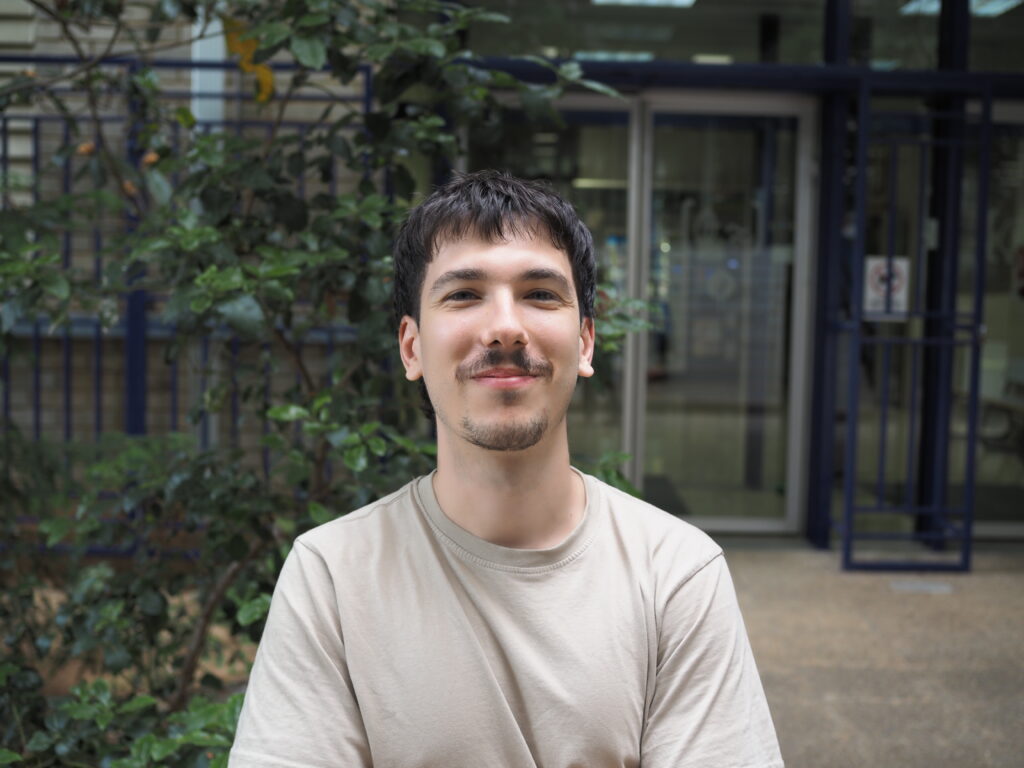
Looking ahead, in September I will begin a new contract at Cucare Diagnostics, a spin-off of the University of Valencia (Cucare Diagnostics on LinkedIn). This position, funded by a Torres Quevedo grant, will provide me with the opportunity to translate the knowledge and skills acquired during the Insect Doctors PhD program into practical applications for the development of a robust and efficient insect-rearing industry.
Follow me on LinkedIn to stay updated on our research, and feel free to contact me if there is anything you would like to discuss!
Jirka Manuel Petersen
July 28, 2025
On March 20th, 2025, I defended my dual PhD dissertation between Wageningen University and Université de Tours in the Netherlands, surrounded by family, friends, and colleagues. The joy of that day still lingers, and my time in the INSECT DOCTORS program remains one of my most cherished memories. But life after the PhD moves fast. After a short break to recharge, I started a 1-year Postdoc at the Max Planck Institute in Bremen (Germany), where I’m now diving into the world of giant viruses infecting aquatic protists. The work in the Protist Virology Group is both fundamental and fascinating, and opened up new perspectives for me.
One month after my start at the MPI, I joined a scientific expedition to the Austrian Alps, sampling high-altitude lakes to study microbial diversity and adaptations to extreme conditions like intense UV and freeze-thaw cycles. Between mountainous heights, marmots, and summer snow, it was a rewarding experience with various challenges to overcome.
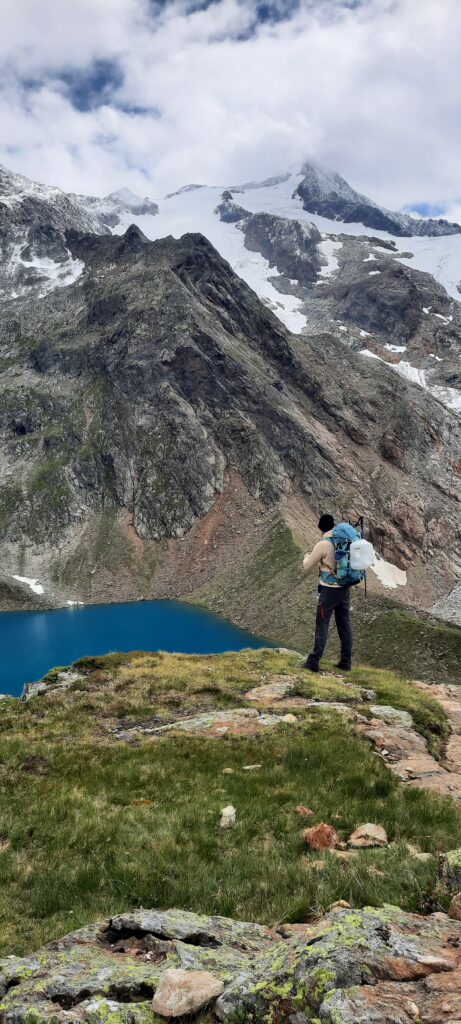
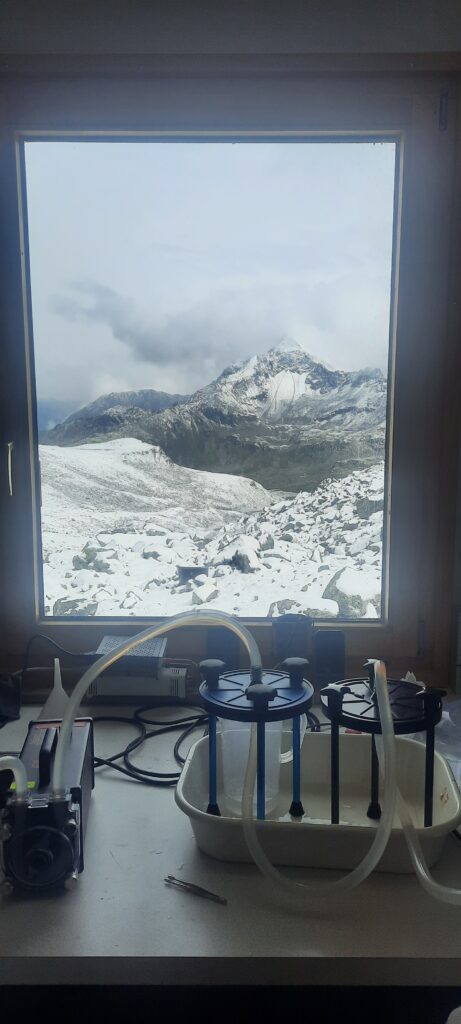
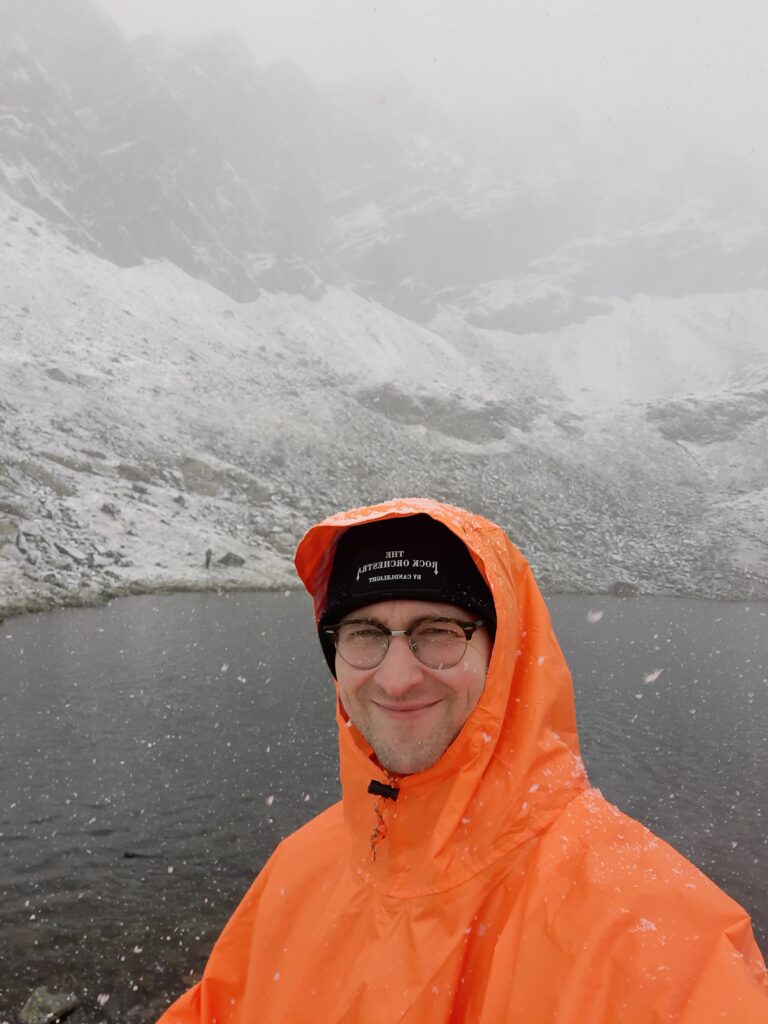
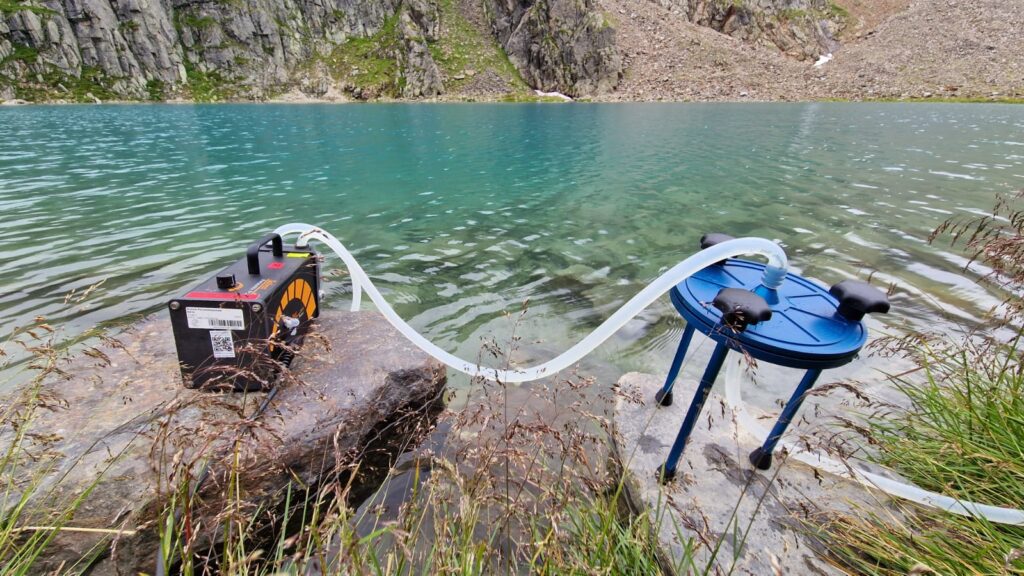
Back in Bremen, I’ve started analysing the first samples using flow cytometry. More experiments will follow soon, including different culturing experiments and hands-on next-generation sequencing. My passion for invertebrate pathology and virology remains strong, and I’m always open to new ideas and collaborations. Reach me at jirmanpet@gmail.com, or follow my updates: www.linkedin.com/in/jirka-m-petersen; bsky.app/profile/drjmpetersen.bsky.social
Pascal Herren
Published October 15, 2024

After completing my PhD, which I defended at Leeds University in December 2023 and later at the University of Copenhagen in March 2024, I took some time off to explore the world. I embarked on an incredible journey through the Philippines and Indonesia, and after that, I spent time traveling through Turkey, Albania, and Italy.
In August, I returned to Switzerland and
started a new chapter of my career. in September 2024, I joined the Institute of Organic Agriculture
(FiBL, https://www.fibl.org/en/),
working on new plant protection strategies in vegetable crops. My role allows me to apply many of the skills I developed during my PhD, such as scientific writing, experimental design, and project management.

It’s great to be back in the agricultural field, which is where my academic journey originally began. At FiBL, I’m also learning a lot of new things and getting hands-on experience during field trials. Overall, it’s been a fulfilling experience so far, blending the knowledge from my PhD with new practical skills.
Carlotta Savio
Published Aug 27, 2024
I defended my PhD in November of 2023 with the support of my family, friends and colleagues at Wageningen University, NL. The InsectDoctor Program gave me a box of tools applicable in several fields.

I decided to persue my scientific career as Post doctoral researcher joining the Unity of General and Applied Entomolgy at the Agriculture, Forest and Food Department (DISAFA), University of Turin, IT within the project Insect Probiotic-assisted Farming: a promising tool to enhance edible insect health and performances (InProFarm), developed in collaboration with the University of Milan, IT. The main aim of the project is to develop microbe-assisted strategies to enhance growth, reproduction and immune responses of mass reared insects throught the amministration of probiotic strains also for mitigating the presence of multiple stressors.
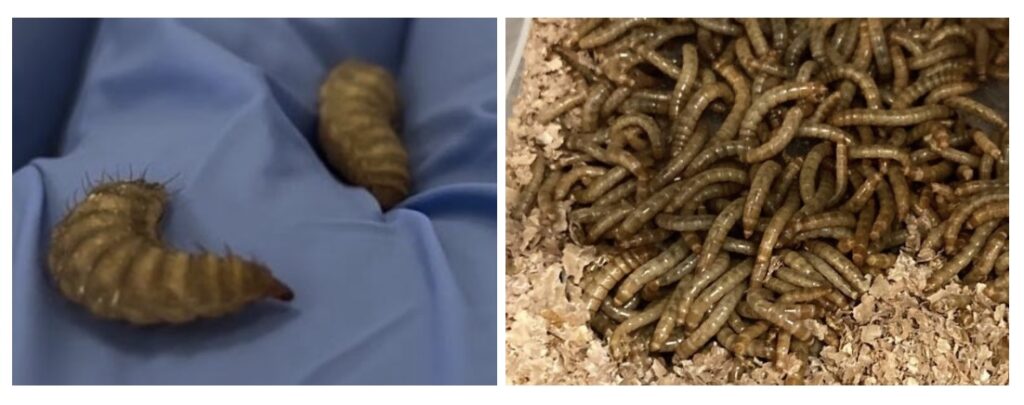
There is some work in progress on publications from the PhD, there is exciting science ongoing in Turin and I am always open for discussions and collaborations for new projects.
If you wanto to reach me or to stay updated on what it is going on check out: @carlottasavio1;
www.linkedin.com/in/carlotta-savio-48930a140
Sam Edwards
Publshed July 27, 2024
I submitted my PhD thesis in September 2023 and then successfully defended it in December 2023 in a public defence in a beautiful auditorium at the University of Copenhagen in the presence of friends, family and colleagues (see picture). I had to travel to Denmark for the defence as in October 2023 I moved to the Netherlands for a postdoc position in the Laboratory of Virology at Wageningen University (no rest for the wicked). Here, I am continuing my research into host behavioural manipulation, this time in baculovirus-infected caterpillars, although I will still be doing some zombie fungus work to finish off a couple of chapters for publication. I am using my knowledge gained during the InsectDoctors programme to unravel the molecular mechanisms of viral manipulation of insect behaviour, using the SeMNPV baculovirus and its lepidopteran host Spodoptera exigua. My primary focus in this postdoc is to study how light triggers the caterpillars to climb to an elevated position (a.k.a. summiting) to die and disperse viral particles, which will ultimately allow us to have better understand the molecular basis of behaviour and how evolution has led to parasites and pathogens hijacking their hosts to do their own bidding.
As I am now working with virus-infected caterpillars, I am now on the lookout for these in nature. Here I have found and am collecting some [granulo?]virus-infected gypsy moth larvae during a conference in the USA. I look forward to using these for teaching and potential side projects.
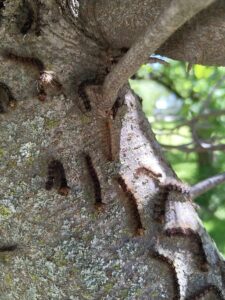
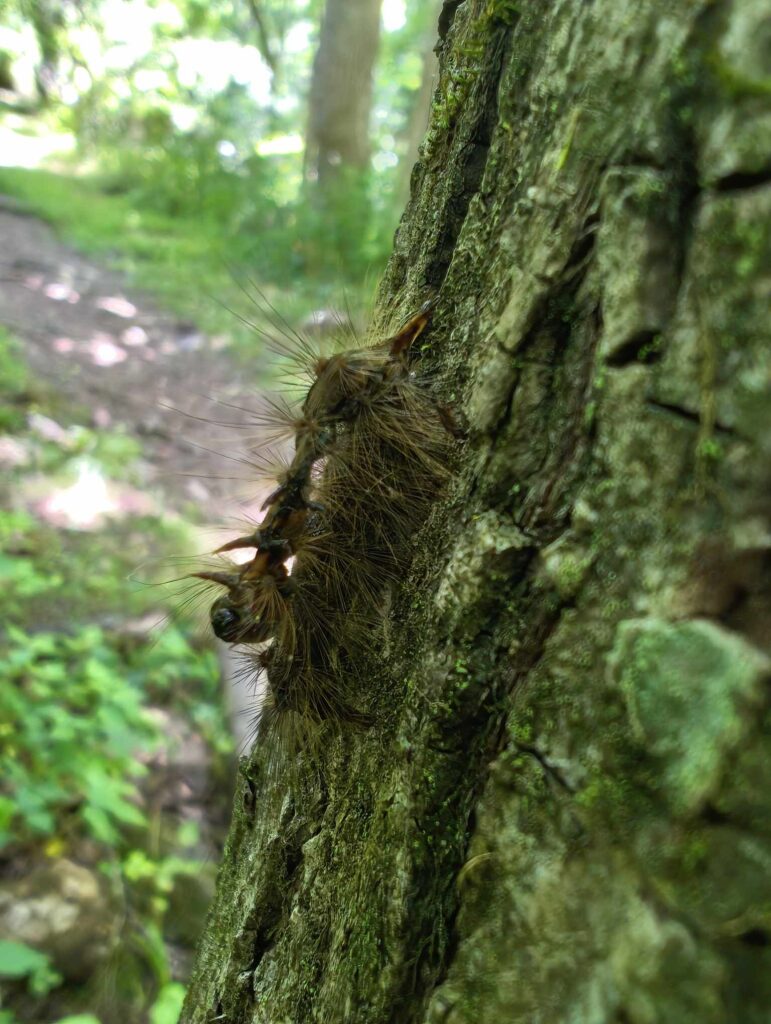
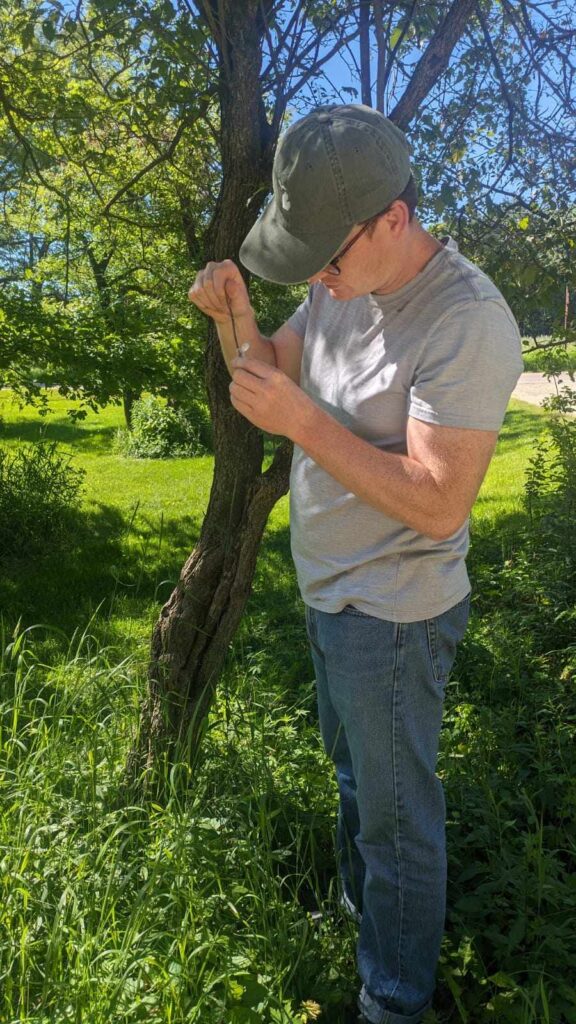
In July 2024, I attended the graduation ceremony at my second university, the University of Exeter. I was joined by my supervisor Bryony Williams and fellow InsectDoctors PhD and good friend, Édouard Bessette, to celebrate the day with me.In July 2024, I attended the graduation ceremony at my second university, the University of Exeter. I was joined by my supervisor Bryony Williams and fellow InsectDoctors PhD and good friend, Édouard Bessette, to celebrate the day with me.
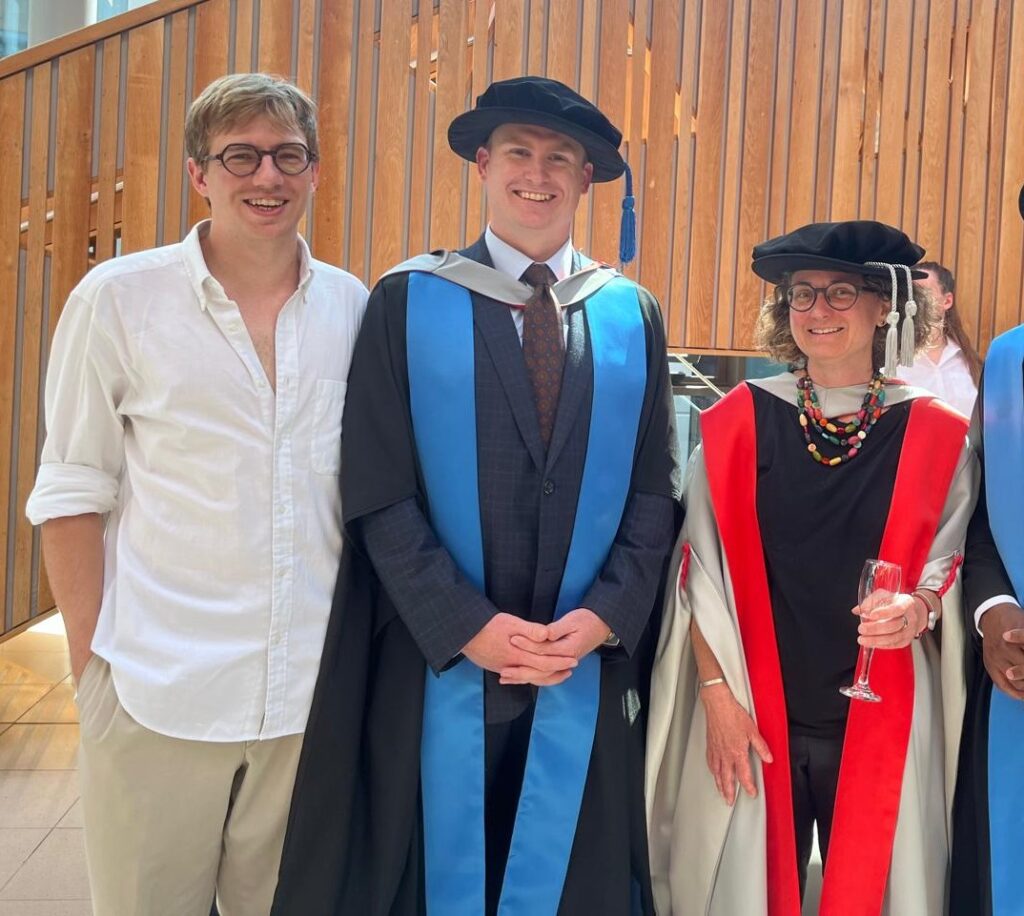
Jen Upfold
Published July 12, 2204
I defended my PhD in November of 2023, with the support of my family, friends and colleagues at INRAe, France. I gained valuable experiences during my time in France; however, I decided to move to Copenhagen, Denmark, where I am now a postdoc at the Department of Veterinary and Animal Sciences of the University of Copenhagen. Following my PhD research which explored how invertebrates (Galleria mellonella) respond to different pathogens, focusing in particular on the host microbiota-immune response interactions.
I am now leveraging this knowledge to explore how climate change impacts the immune responses and life history strategies of snails involved in the fasciola lifecycle. Fascioliasis, caused by parasitic trematodes, poses increasing threats to global health and agriculture. This work is part of another EU Horizon 2020 funded project, PREPARE4VBD (prepare for vector borne diseases). My primary focus in this postdoc is to study the effects of climate-change induced heat stress on the immune defenses and life history traits of two intermediate host snail species, Radix balthica and R. natalensis, which ultimately will allow us to have a greater understanding of future disease dynamics of fascioliasis on a warmer planet.
